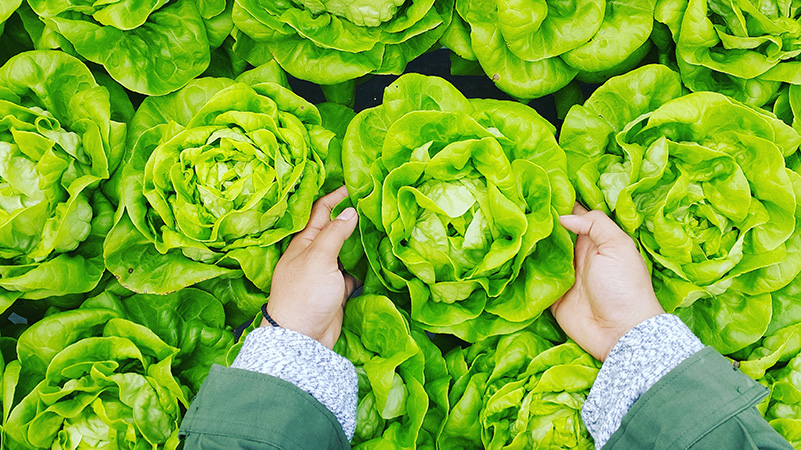Living Abundantly in an Age of Scarcity
By: Tim Kraus
We live in a world of Paradox.
A Paradox is a phenomenon in which two opposing ideas or realities that are both seemingly true exist side by side in the same space and time.
Paradox is the greatest of teachers because it is in that area of tension between opposing Truths that humans experience the deepest amounts of growth and learning. Knowledge itself is born out of paradox.
As a high school history teacher, I knew that I was entering the most sacred of learning spaces when I could ask questions of my students that would force them to live in and struggle with the tension of opposing truths. For example: How could the early leaders of our country write truly revolutionary founding documents and governmental structures that proclaimed and institutionalized the political philosophy that all men (or people) were created equal, and then, at the same time they enslaved a whole population of people thereby making a mockery of the very ideals they held to be absolutely true?
Here is another. How can the creation of one thing of social value lead to the destruction of another thing of equal and great social value? This question poses the dilemma of technological and philosophical progress. Is it really progress when an industrial revolution that mass-produces the tools and materials necessary for a modern society to exist while at the same time it causes the destruction of the social and family structures that we all cherish?
Or, the United States is often considered a country with the greatest amount of Freedom in the world. On the other hand, the United States also has the largest number of people in prison and the largest percentage of its people in prison than any country in the world. It is only by wrestling with the tensions or conflict that these contradictory realities create that we find ourselves most fully alive and at our most creative. This is not easy work. In fact, it is hard work. But it is essential for us to struggle with these kinds of lived contradictions if we are to create a better world for ourselves and for future generations.
One of the most striking paradoxes that we experience today is that we live in a world of great abundance and great scarcity; both, at the same time.
If living on this earth for the past 66 years has taught me anything, it has taught me that we live in a world of abundance. We experience that abundance every day of our lives. We live in a world filled with the capacity of its natural resources to provide enough to sustain every living being. We see and feel an abundance of beauty that is gilded by every sunset, sunrise, twilight, and starry night. And we also live in a world populated by an abundance of human talent; enough talent to make right almost all the challenges and problems that we face. In short, we have inherited a paradise of unfathomable proportions and possibilities that continues to give and inspire us daily.
But we also must recognize that there are limitations to the abundance that surrounds us. There are real issues of scarcity that are driven by the fact that we have squandered the abundance we inherited. We have abused and destroyed so many of our natural resources that we now face the real possibility that we will not pass down to future generations a planet that can sustain human life in any of the ways in which we are accustomed. I do not need to recite the litany of endangered or extinct species of animal and plant life that have been depleted in our lifetimes. Nor do I need to review with you the impact of Global Climate Change. We all know that the collective human impact on this earth is so huge and so predominantly negative that something must be done to turn the trend of extinction and destruction around or we will no longer have an inhabitable planet.
The paradoxical twist to this scarcity is that there is still enough of everything for everyone to live a reasonably good and comfortable life. The problem is that a very tiny percentage of the world’s population is unsustainably consuming and destroying close to 90% of the world’s resources leaving most of the world no option but to live in squalor.
This is an issue of false scarcity. There is enough wealth and enough food in our world for everyone to live. No one should be starving, and no one should lack enough wealth to maintain a survivable standard of living for themselves and their descendants. But our predatory local, national, and world economies have created a world in which 62 of the world’s richest people now own more wealth than half of the rest of the world. Additionally, the top 1% of wealth holders control more wealth than the entire 99% of the world below them. This kind of lopsided economic order spells disaster for all of us. Rich and poor.
Therefore, a Big Dream of a Better World is essential.
Scarcity thrives on inequality and injustice and it demands inequality and injustice. The sharing of abundance, the sharing of salvation for all, the sharing of the oneness of our existence exposes the lie that many people must suffer so a few can have obscene levels of luxury. Universalism and the best thinking that every religious tradition all provide us with the tools we need to turn our predatory and slave holding world into a world of God’s abundance.
This article is adapted from a sermon given by Tim Kraus of the First Unitarian Church of Cincinnati.
It originally appeared in Cincinnati’s StreetVibes newspaper and appears here with permission.
Photo by PHÚC LONG on Unsplash



